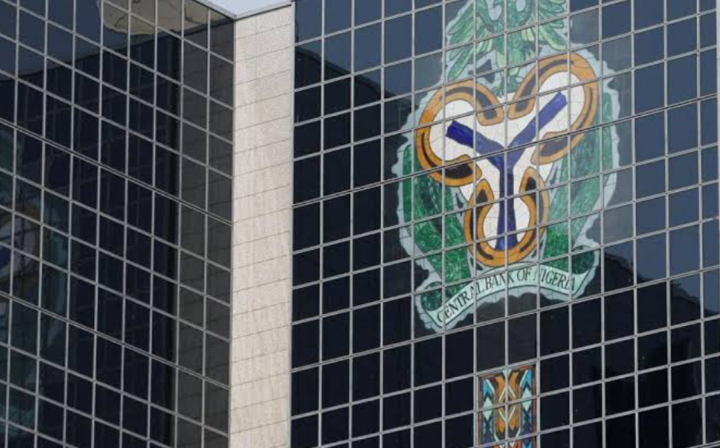The Central Bank of Nigeria (CBN) has issued a new directive requiring Domestic Systemically Important Banks (DSIBs) to formally plan leadership transitions well in advance. Under the policy, successor managing directors or chief executive officers must be approved by the regulator at least six months before the incumbent’s term ends, and publicly announced at least three months prior to the handover.
Signed by Dr. Rita Sike, Director of Financial Policy and Regulation at the CBN, the circular is aimed at minimising disruptions in Nigeria’s banking sector and ensuring orderly transitions at its most critical institutions. The regulation applies to banks classified as DSIBs—those whose size, financial interconnectedness, and role in the economy make them too important to suffer from leadership vacuums.

In the circular, the Central Bank referenced its 2023 Corporate Governance Guidelines, specifically Section 2.14, which already mandates that banks—commercial, merchant, non-interest, and payment service banks—maintain clear succession plans for their MD/CEO, other executive directors, and senior management. It underscored that the new directive builds on those guidelines and tightens the timeline for regulatory approval and public disclosure.
The directive demands that banks seeking approval must present their planned successor to the CBN no later than six months before the current MD/CEO’s expiration of tenure. Similarly, the bank’s board must publicly announce the successor at least three months before the outgoing leader officially vacates office. The move is intended to give both incumbents and successors sufficient runway to prepare, reducing risks often associated with abrupt or poorly managed exits.
CBN stated that abrupt leadership changes can produce instability not just within an individual institution but across the financial system. Given DSIBs’ influence—through deposits, lending, payments, and other critical infrastructure—the regulator sees early succession planning as a vital measure for preserving investor and depositor confidence, maintaining operational continuity, and keeping risk of leadership vacuums low.
The timing of the directive comes against a backdrop of noticeable leadership changes in Nigeria’s banking sector. Most recently, Access Holdings confirmed the appointment of a new Group MD/CEO, Innocent Ike, following the exit of a predecessor, under regulatory oversight. Such transitions are now expected to adhere strictly to the new CBN rules, avoiding gaps in leadership and ensuring smooth handovers.
Industry analysts have largely welcomed the move. They view it as a step toward strengthening governance, bringing Nigeria more in line with international best practices, and reducing risks that stem from unclear or delayed leadership transitions. According to experts, knowing in advance who will succeed an outgoing MD/CEO allows for better strategic planning, institutional memory to be preserved, and continuity in policy and operations.
However, some observers caution that implementation will be the real test. Challenges could include resistance from boards unfamiliar with succession planning, difficulty in identifying suitable successors months ahead, or delays in board approvals. There’s also concern that public disclosure three months out might constrain flexibility in the selection process, or lead to uncertainty or speculation if stakeholders perceive announcements as premature or politically motivated.
Banks, especially large ones, are being advised to audit their internal frameworks, identify leadership gaps now, and begin looking internally or externally for potential successors. Boards are expected to take more active roles in talent development, leadership grooming, and documenting institutional knowledge to ensure that when transitions occur, they are smooth.
From a regulatory perspective, the CBN is likely to monitor compliance closely. Non-compliance could attract sanctions or penalties under existing corporate governance or supervisory regimes. The circular emphasised that DSIBs are expected to ensure strict compliance, indicating that deviations from the requirement won’t be tolerated.
For depositors, investors, and the general public, the mandate could deliver greater predictability. Banks operating under the DSIB status wield large financial responsibility: their stability matters not just for their shareholders but for the broader economic network—borrowers, depositors, corporate clients, and across payments systems. A sudden exit of a bank CEO without a clearly announced successor could shake confidence, disrupt strategic initiatives, and create uncertainty in service delivery.
Some banking experts note that the policy could also reshape the internal culture of banks. Succession planning often requires investment in leadership pipelines, human resource development, mentorship, and clearer structures for grooming future leaders. Over time, this could raise the overall quality of management in the Nigerian banking sector.
There’s also the question of how boards will balance adhering to the CBN’s timelines with ensuring the chosen successor is the right fit—competent, experienced, and capable of keeping up with the demands of a systemically important bank. There may be tension between meeting the six-month approval and three-month public announcement requirements and the need to thoroughly vet candidates.
Overall, the new directive reflects the CBN’s intention to reduce fragility in the banking sector, strengthen governance, and align Nigeria’s practices with global expectations. As finance sectors in many countries have learned, leadership is not just about who is in charge, but ensuring that transitions are well managed so that operations, risk management, and strategic plans remain robust.
In the months ahead, stakeholders will closely watch how quickly DSIBs adjust their internal policies, how many leverage the new timeline effectively, and whether the quality of leadership transitions improves. If the policy is well executed, it has the potential to improve leadership continuity, reduce risks tied to sudden exits, and boost confidence in Nigeria’s banking system—an important consideration as the sector navigates both domestic challenges and global economic headwinds.
Support InfoStride News' Credible Journalism: Only credible journalism can guarantee a fair, accountable and transparent society, including democracy and government. It involves a lot of efforts and money. We need your support. Click here to Donate
